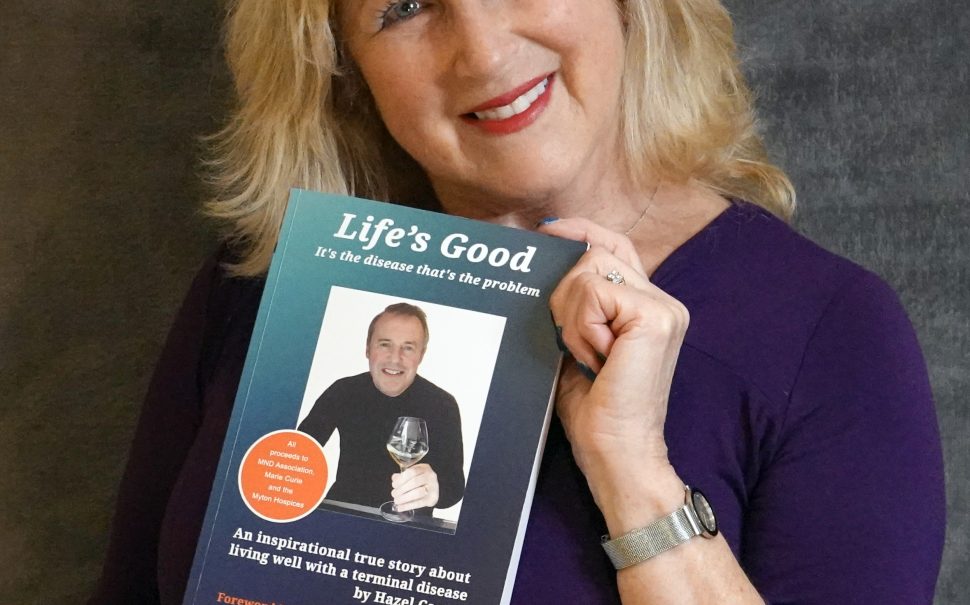A third of people with motor neurone disease (MND) pass away within a year of diagnosis, and more than half within the first two years.
MND can leave people locked in a failing body, unable to move, talk, and eventually breathe.
When Hazel Carter presented her social media followers with 12 facts about MND, the above two were the statements that injected her readers with the most fear.
Award-winning inspirational author Hazel from Solihull is releasing her memoir, ‘Life’s Good, It’s the Disease that’s the Problem.’ The book presents the unfiltered truth of what it’s like to care for a loved one with a terminal illness.
Hazel met her husband Alan on June 14th 2006 and the pair married on the same date in 2014. In November 2017, Alan began experiencing weakness in his right arm and after numerous tests, was diagnosed with MND.
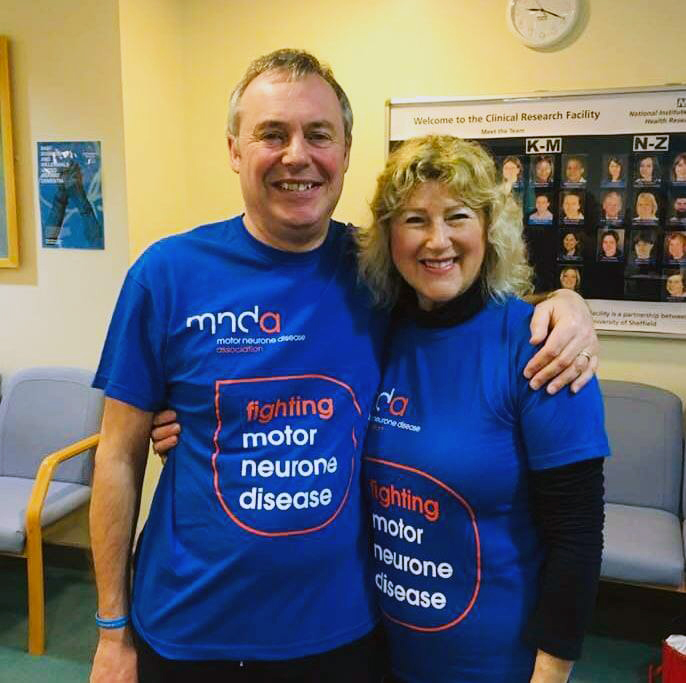
Hazel said, “At that point, we were told Alan had got six months to two years to live. That was a really shocking moment because it didn’t compute that somebody with just a weak arm had a terminal illness! It was a huge bombshell. It felt like the floor was opening up below our feet.
“We cried a lot together and talked for hours after the diagnosis. Alan kept saying things like it’s not fair on you. He was so upset for me, really.”
With no children or immediate family in the neighbourhood, Hazel became Alan’s primary carer which, over time, caused her to spiral into a low and distressed state. At one point she made a phone call to the Samaritans for support in the middle of the night.
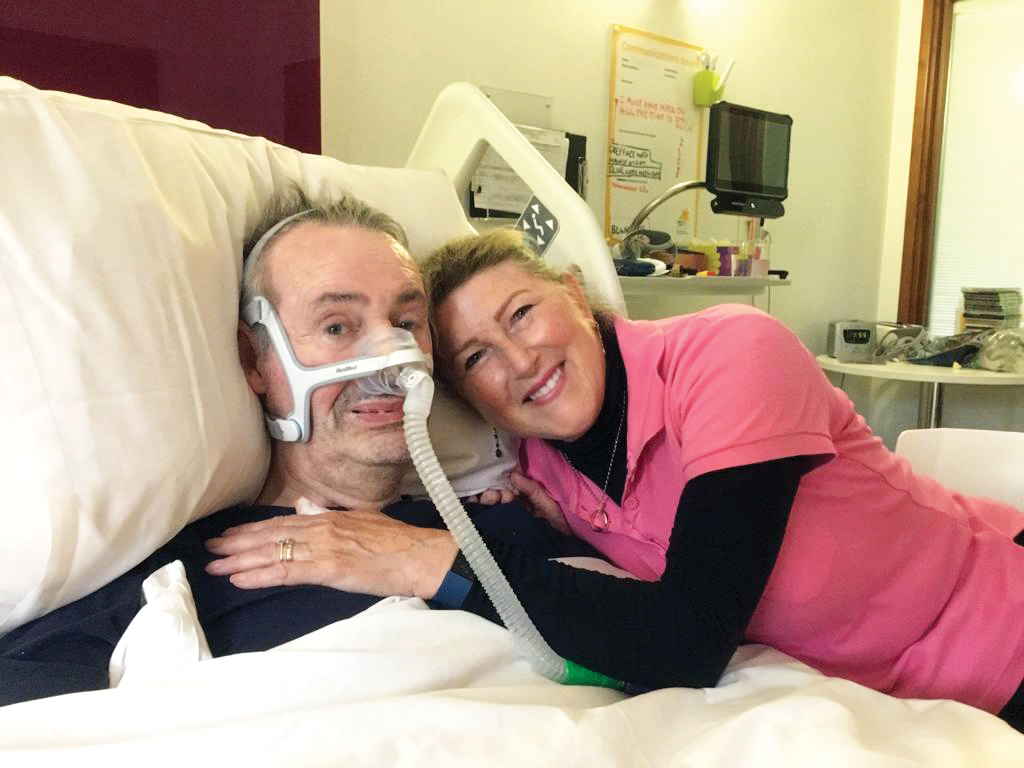
When she eventually joined her friends on a respite skiing trip, Hazel admitted, “I felt like a zombie being away without Alan while he was cared for in a hospice. I kept thinking that one day I would be without him forever.”
It was some time into Alan’s diagnosis when his occupational therapist approached Hazel suggesting she write a book. Alan agreed with the idea, declaring that he wanted Hazel to tell the world what it was really like for the two of them.
For Hazel and Alan, the book became a thing to talk about when their entire world was falling apart. They joked about what to call it and Hazel admitted that it has since given her a purpose and a way to get everything out of her system.
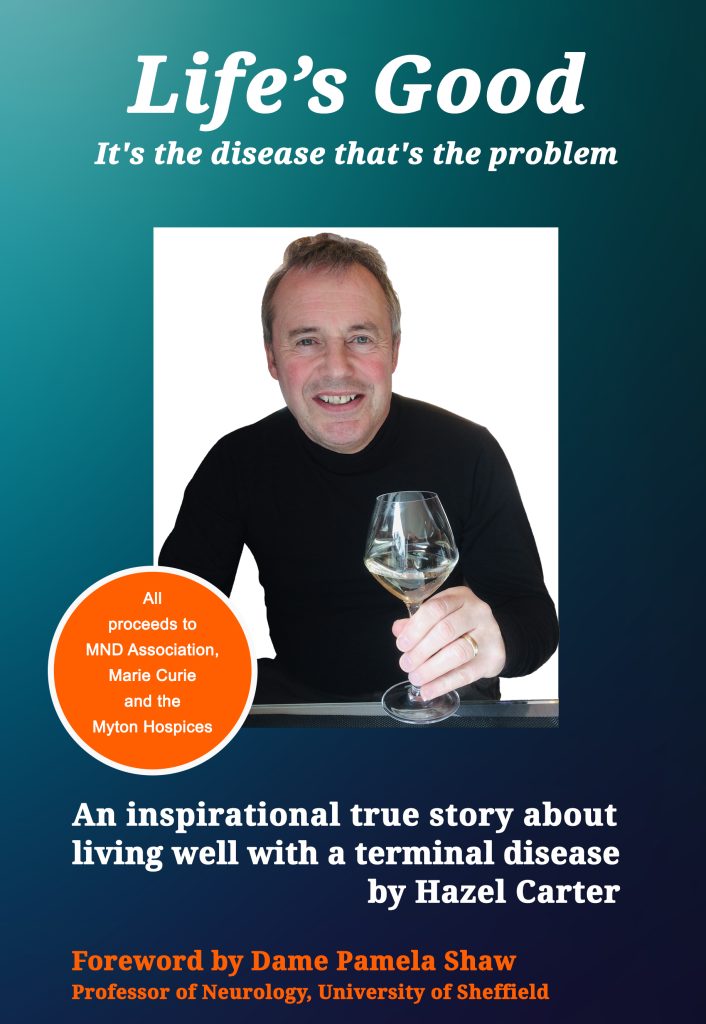
Hazel said: “I really want better support for carers and for families. It’s not just about physical support, it’s about psychological support.
“I just want to set the record straight about what this is really like and how people are affected by it. It’s not for any personal fame or pity.”
The memoir is the key to starting conversations and raising awareness for a disease most people still know very little about. Hazel aims to use her experience to showcase how everyday people are caring for loved ones and being faced with the unknown on a daily basis.
Hazel admits: “I’d never heard of anticipatory grief until we were about six months down the line.
“I remember someone saying do you want to talk to the bereavement counsellor and I thought I’m not bereaved.
“But taking care of a loved one with MND requires attention to self-care and high levels of support, both physically and psychologically.”
Medical professionals often admit that MND is a diagnosis they fear the most due to its relentless and unpredictable nature. No two cases of the disease are the same, and so it was vital to Hazel that she did not present a sugar-coated version of events.
Alan passed away on June 5th, 2019.
For Ian and Cath Muir (65, 63) MND took over the happy retirement they had planned after raising their two sons when Cath was diagnosed with MND over nine years ago.
The couple ran a business together and have since talked on BBC Breakfast and completed fundraising challenges since MND took over their lives.
Ian, once a crop scientist, received 10 minutes of hands-on medical training to ensure Cath received the right medication and nutrients.
He said, “There is a medical answer for everything but it isn’t necessarily the right answer.
“They will tell you the answer to the question but it isn’t always the solution to the problem.”
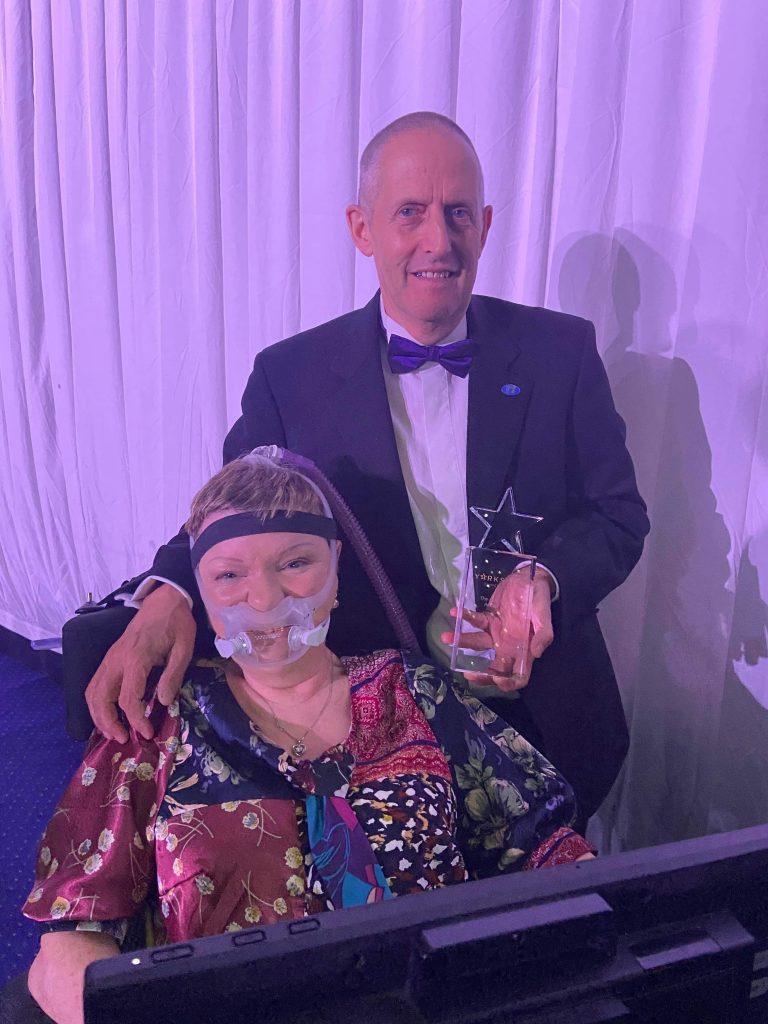
Ian struggles to socialise and prioritise his own well-being above Cath who uses an eye gazing machine to communicate, admitting that “Nobody knows how to look after her like I do. If I ever go out and leave other people in charge I spend most of the time worrying”.
Like Ian, Megan Rose Gray and sister Georgia, aged 28 and 25, cared for their mother, Debbie, 55, who passed from the disease in December 2021.
Megan said, “Apparently it’s rare, but it doesn’t feel that way. It’s one thing to lose someone you love but going through the trauma of having to look after someone with MND is another thing altogether.
“In the end, it took everything from Mum and I had to feed her every day through a syringe through a tube in her stomach. She relied on an NIV mask to breathe, and she lost her speech. I hope one day I can use what I’ve gone through to help others.”
In total, Hazel and Ian have raised over £100,000 for the MNDA.
Hazel’s book, ‘Life’s Good, It’s the Disease that’s the Problem’ is released today, June, 21 – Global MND Awareness Day and what would have been Alan’s 69th birthday. (see https://lifesgoodbook.co.uk)
All proceeds are being split between the MND Association, Marie Curie, and The Myton Hospices.
